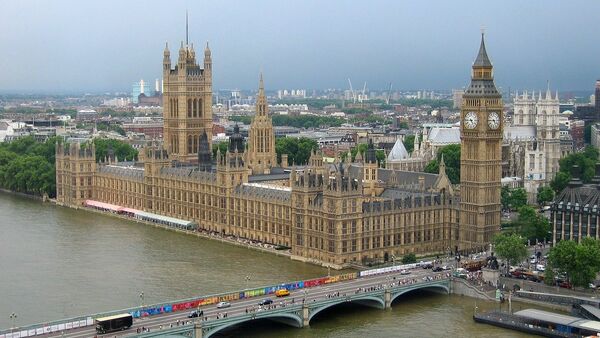Dr Tara McCormack, a political commentator, has given her views on the significance of the US national security adviser's visit.
Sputnik: US National Secretary Adviser John Bolton has arrived in London for talks during which he is expected to urge Britain to toughen its stance on Iran and Chinese telecommunications firm Huawei. How significant is this visit by John Bolton to Britain?
Dr Tara McCormack: First of all, there's nothing in itself, and I don't say this as any fan of John Bolton, I think he has a pretty malign interest, there's nothing unusual or wrong in itself with allies discussing foreign policy and discussing joint operations and so on.
I think for Britain, the situation is quite complicated, looking at it from a British establishment point of view, given that Britain, for example when it comes to Iran, Britain has supported other European allies in essentially understanding that the problem lies with the Americans in terms of their withdrawal from the Iran nuclear deal. It is American actions against Iran that have taken us to this point of tension.
Sputnik: Focusing on Iran, Bolton’s visit is largely in response to British Royal Marines seizing an Iranian vessel off the coast of Gibraltar on 4 July. Following this visit, could we see Britain tow the US line in dealing with Iran? If so, what effect will this have on Britain and how it is perceived abroad?
Dr Tara McCormack: It's very hard to know. On the one hand, we can see that Britain is willing to engage in what are, frankly, illegal activities in order to demonstrate that we are still number one allies. Again, whether Britain will go any further, it's impossible to say. I just don't know what will happen and what Bolton will request.
It also quite a complicated dynamic going on within the American administration - there have been quite a few interesting reports on the idea that Trump very much sees Bolton as the kind of bad cop, but that also Trump is aware of Bolton’s propensity to engage in any conflicts he possibly can get into and that there are tensions there as well within the American administration. It's very hard. We've got such a complex and confusing situation, whereby the American administration itself is speaking with several voices with ours.
Sputnik: With Brexit looming, talk of a trade deal between the US is one which has been debated a lot on both sides. Should there be a level of caution with this willingness to closely align ourselves with America? Should there be a caution from the government going forward with all these trade deals and these close alliances with the US?
Dr Tara McCormack: My argument would be absolutely. I think we've engaged, since the end of the Cold War, in several absolutely disastrous foreign policy "adventures", to put it in those terms; whether it's Iraq or Libya, for example. I think what Britain really needs to do, but I don't hold out much hope for this, would be post-Brexit a genuine reconsideration of foreign policy: what do we want Britain to do in the world? What do we want it to be?
I think the British people, but this is also for Americans, do not wish to engage in military interventions. For all the talk of sovereignty and taking back control, when it comes to foreign policy, what we see is a really sort of pitiful just staying on the treadmill; we just have to do more of the same rather than actually think "Well, hold on, what British interests are possibly advanced by the seizure of the Iranian ship and ratcheting up tensions with Iran?" Absolutely none.
Another war in the Middle East would be an absolute catastrophe for the people in the Middle East, but also for those who participate in it. So, yes, I think we definitely do need to rethink British foreign policy: what do we want to do? What kind of foreign policy do we want to have? At the moment the signs are not particularly positive that if we do leave, post-Brexit or even if we don't leave, there will be any kind of rethinking of what are our interests when it comes to foreign policy; I would definitely say our interests are not engaging in more catastrophic military adventures.
The views expressed in this article are solely those of Dr Tara McCormack and do not necessarily reflect the official position of Sputnik.



